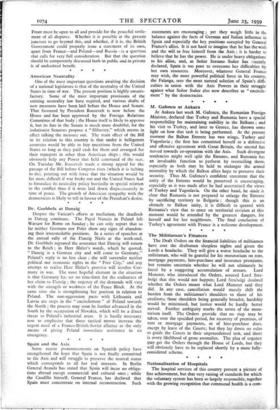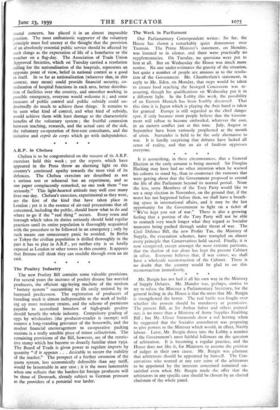Nationalisation of Hospitals The hospital services of this country present
a picture of fine achievement, but that very raising of standards for which the voluntary system has been so largely responsible, together with the growing recognition that communal health is a corn- munal concern, has placed it in an almost impossible position. The most enthusiastic supporter of the voluntary principle must feel uneasy at the thought that the provision of an absolutely essential public service should be affected by such things as the expectation of life of a benefactor or the weather on a flag-day. The Association of Trade Union Approved Societies, which on Tuesday carried a resolution calling for the nationalisation of the hospitals, represents an opposite point of view, belief in national control as a good in itself. In so far as nationalisation (whatever that, in this context, may mean) could provide financial security, co- ordination of hospital functions in each area, better distribu- tion of facilities over the country, and smoother working in possible emergency, everyone would welcome it ; and some measure of public control and public subsidy could un- doubtedly do much to achieve these things. It remains to be seen what kind of control, and what kind of subsidy, would achieve them with least damage to the characteristic benefits of the voluntary system ; the fruitful connexion between teaching, research, and the actual care of the sick, the voluntary co-operation of first-rate consultants, and the initiative and esprit de corps which go with independence.











































 Previous page
Previous page